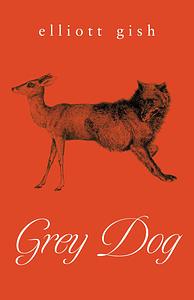You need to sign in or sign up before continuing.
Take a photo of a barcode or cover
1) holy shit
2) elliot, please write another book because your writing is was so engrossing that i finished this book in 2 1/2 days
3) this would make an incredible miniseries
4) holy shit!
Graphic: Death, Emotional abuse, Mental illness, Misogyny, Physical abuse, Sexism, Violence, Blood, Grief, Religious bigotry
Moderate: Sexual assault, Sexual violence, Pregnancy
Minor: Miscarriage, Vomit
It is not terribly written although it felt dragging at times.
Graphic: Sexual harassment
Moderate: Animal death, Child abuse, Infidelity, Miscarriage, Rape, Violence, Grief, Religious bigotry, Murder, Schizophrenia/Psychosis , Toxic friendship
Minor: Domestic abuse, Emotional abuse, Mental illness, Misogyny, Physical abuse, Forced institutionalization, Blood, Vomit, Stalking, Gaslighting
She elicits curiosity and friendship from the town, starts the school year off well engaging the students, taking then for small explorations in the woods, and begins to hope for a future in this place.
Ada keeps a journal, and we discover that she is still grieving the violent death of her sister Florrie who was married to an abusive man. Both she and Florrie are no strangers to abuse, as their father spent years emotionally and physically abusing them.
As Ada begins to feel comfortable in the town, small things begin happening: she sees strange, disturbing things that no one else can, and begins to believe the Grey Dog, the presence she feels in the woods, is leaving her animal corpses and visions. Ada becomes increasingly unsure what is real and what isn't, and between her slowly unravelling mental state and her befriending an unconventional, wealthy widow who keeps herself separate from the town residents, Ada's reputation begins to deteriorate to the point that she can barely tell what is real and what is caused by the Grey dog.
This book plays with one’s perceptions, and the reliability of the main character’s narration: was she suffering from overwhelming grief and years of physical abuse to the extent that she began seeing things that were not there? Or was there actually a wild presence in the woods outside the town that only some people could see, particularly oppressed and/or abused girls and women? Or is Ada's behaviour just a manifestation of female rage that can no longer be contained after all the restrictions, hatred and abuse?
Author Elliott Gish walks a fine line between the daily horror inflicted by patriarchy and misogyny, and the possibly supernatural, elemental force that some women of the town give themselves to.
The author, though including some gory scenes, creates more of a suspenseful story with menace and violence creating a horror-filled atmosphere. Ada is desperate to flee society's and her father's expectations and constraints. She doesn't really understand her feelings as there has been no one to show her or support her in expressing these emotions and desires, including that of her burgeoning sexuality. It's no surprise that Ada hears the call of the otherworldly entity or elemental force, giving in increasingly to a desire to not conform, to not be respectable, as that has never made her happy.
This was a beautifully written story that pulled me in immediately. Ada's journal entries give you a fantastic understanding of her changing, possibly deteriorating, mental state, including her resentments, her worries, and her increasing fascination with whatever is in the woods.
This is a book that lingered in my mind long after I finished it. I felt uncomfortable and deeply sympathetic for Ada, and loved the way the novel closed.
Thank you to Netgalley and to ECW Press for this ARC in exchange for my review.
Graphic: Body horror, Child death, Death, Gore, Miscarriage, Sexual content, Murder
Moderate: Child abuse, Domestic abuse, Homophobia, Misogyny, Grief, Classism
"'There are two Gods,' she'd told me once, sotto voce in case our father heard her uttering such an impious thought. 'There is the God of inside — the God of churches, and prayer meetings and all that — and then there is the God of outside, the God that lives in the trees and in the dirt. And the insects, and the birds, and the things that eat them too.”
This is a great horror-for-lightweights like myself. I'm not big on being scared, but Grey Dog was just uncomfy enough to make me squirm and keep turning the page. Grey Dog is set in 1901-1902 Canada and is written in journal-entry format. Our protagonist, Ada, is a young schoolteacher with a dark past who arrives at her new post in small-town Lowry Bridge, where there is a wonderful array of strange, creepy villagers. Soon, Ada begins finding disturbing bits and pieces of mutilated animals, and it becomes hard to know if what she's experiencing is real or imagined. As Ada gradually loses her grip on reality, her dark past and what she's left behind becomes revealed.
“A good woman. How odd that the phrase has such a particular meaning. One might say “a good man” and mean anything — there are as many ways of being a good man, it seems, as there are of being a man at all. But there is only one way to be a good woman. It is such a narrow, stunted, blighted way to be that I wonder any woman throughout history has been up to the task. Perhaps none of us ever have.”
Grey Wolf explores what it means to be "a good woman," feminine rage, and queer love.
A solid 4 stars.








